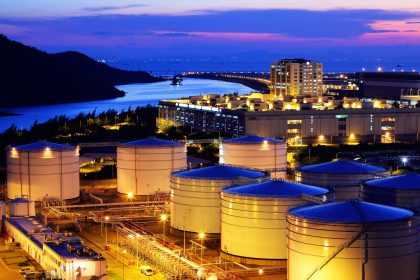
The latest Official Gazette publications have introduced several tax reforms affecting Value Added Tax (VAT) and Excise Duties (IIEE), particularly as they directly affect the management of fuels, diesel and biofuels.
These novelties have been incorporated by Law 7/2024 of 20 December and by Royal Decree-Law 9/2024 of 23 December, amending Article 19.5 “Operations assimilated to imports of goods” of Value Added Tax Law 37/1992, which directly affects the management of fuels, gas oils and biofuels under the excise warehouse regime, and adding a new section eleven to the annex of the same, detailing new procedures on VAT guarantees and their application.
As of the new amendment, when these products are removed from the excise warehouse, the last depositor of the product or the holder of the excise warehouse in case he/she is the owner of the products, will be responsible for settling the VAT for the taxable event of a transaction treated as an import when the product is delivered and the non-customs warehousing procedure is deemed to have been discharged.
This adjustment to the rules specifies more clearly who is responsible for the assessment of the tax, thus avoiding potential tax loopholes and helping taxpayers to meet their tax obligations in a precise and transparent manner.
Furthermore, with the new addition of the eleventh paragraph to the Annex, the last depositor or the holder of the excise warehouse in the event that he is the owner of the fuels, gas oils and biofuels extracted from it, is required to provide a guarantee (in the form of a guarantee or payment on account) covering the VAT on subsequent supplies subject to and not exempt from VAT, unless he has AEO status or the new status of reliable operator.
This trusted trader status is introduced as a special category within the tax regulations, aimed at identifying traders that meet high standards of compliance and solvency. To obtain this recognition, operators must meet a few requirements, including significant experience in the fuel trading business, a minimum volume of fuel withdrawals during the previous year, and comply with the financial solvency regulations set out in EU customs legislation. The status of reliable operator allows these subjects to benefit from certain exemptions and simplifications in terms of the presentation of tax guarantees, contributing to a more agile and efficient management of taxes related to products under the excise warehouse regime.
Finally, the procedure for authorizing the removal of these products from the excise warehouse is reinforced, where the tax administration will verify the sufficiency of the guarantees before allowing the removal of the product and, in the event that the removal is carried out without complying with these requirements, the holder of the warehouse may be held jointly and severally liable for the payment of the corresponding VAT.
It should be noted that a transitional regime is introduced that applies during the month following the entry into force of the Ministerial Order regulating these new conditions. During this time, depositors will not be obliged to guarantee the payment of VAT, but must apply to the tax authorities for recognition as a reliable operator.
How can we assist you?
We suggest that traders analyze the main developments and obligations with regard to these products subject to excise duties in order to ensure full compliance.
Salinas & Partners, with more than 30 years of experience in indirect taxation, is at your disposal for any questions or comments you may have.



